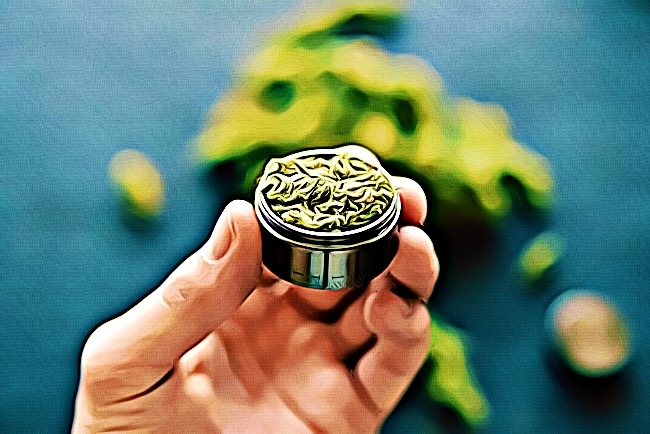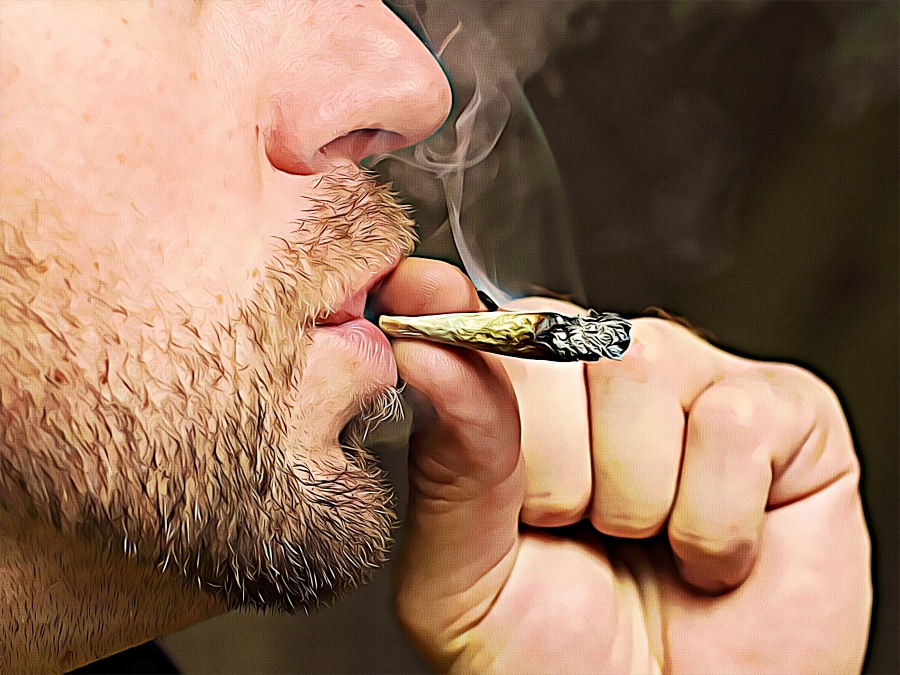Marijuana has long been a controversial topic in the United States, with debates surrounding its medical use and possible legalization. However, while the legal status of marijuana varies from state to state, there is no denying that it is commonly and casually consumed across the country.
Today, let’s take a closer look at marijuana and the health benefits of quitting it. Here’s what you need to know:
Health Benefits of Quitting Weed
Marijuana, commonly known as weed, is a substance that has long been a source of debate due to its potential health benefits and risks. In recent years, more information has been gathered on the positive effects of quitting weed.
1. Improved Lung Function: Quitting weed can lead to improved lung function. Studies have shown that smoking marijuana can damage the airways, leading to inflammation and possibly even lung cancer. Quitting weed can help reduce the damage and allow your lungs to heal.
2. Reduced Anxiety: Smoking weed can cause anxiety and paranoia in some individuals, especially those prone to anxiety or depression. Quitting weed can help reduce these symptoms, making users feel more relaxed and in control.
3. Improved Cognitive Function: Smoking weed can impair cognitive function, leading to impaired memory and concentration. Therefore quitting can help you think more clearly and make better decisions.
4. Improved Sleep Quality: Marijuana can interfere with an individual’s sleep cycle, leading to poor sleep quality. Quitting weed can help improve sleep quality and promote better rest.
5. Reduced Risk of Addiction: Quitting weed can reduce the risk of addiction. Studies have shown that regular marijuana use can lead to dependence and addiction. Quitting weed can help reduce the risk of developing an addiction.
6. Improved Mental Health: Smoking weed can lead to depression, anxiety, and other mental health issues. That’s why quitting can help improve mental health and reduce symptoms of depression and anxiety.
7. Reduced Risk of Cancer: Smoking weed can increase the risk of developing certain types of cancer, including lung and oral cancer. Quitting weed can help reduce the risk of developing these types of cancer.
8. Improved Quality of Life: Quitting weed can lead to an improved quality of life. Smoking weed can lead to impaired judgment and decision-making, making it difficult to enjoy life. Quitting weed can help users make better decisions, allowing them to enjoy life
9. Better Relationships: Quitting weed can help improve communication between you and your loved ones. When people are under the influence of marijuana, it can inhibit their ability to communicate effectively with others. Quitting weed can help you be more present and aware of how you’re sharing with your family and friends and can help improve communication overall.
How to Quit Weed
Making the decision to stop marijuana use is a huge change. Quitting is a big step, and it can be difficult, but it’s worth it in the long run.
1. Set a plan: Decide when you will quit smoking weed and make a plan to stick to it. Set yourself up for success by removing all marijuana-related items from your homes, such as pipes, bongs, and rolling papers.
2. Get support: Tell your family and friends that you are quitting and ask them to support you. Consider joining a support group or finding an online forum where you can get advice and support from others trying to quit.
3. Avoid triggers: Identify situations or people that make it harder for you to stay away from weed and try to avoid them as much as possible. This could mean avoiding certain people or places where you used to smoke.
4. Exercise: Exercise can help take your mind off of smoking and can also help you manage withdrawal symptoms. Consider joining a gym or taking up a new sport.
5. Find new activities: Find activities to replace smoking weed and fill your time. This could be anything from reading to hiking to cooking.
6. Stay positive: Keeping a positive attitude can help you focus on quitting weed. Celebrate small successes and remember why you are choosing to quit smoking.
7. Seek professional help: If you need additional help, consider talking to a doctor or therapist who can provide support and guidance.
Quitting weed is difficult, but it’s not impossible. If you follow these tips and stay committed to your goal, you can quit smoking and start living healthier lives.

What is Marijuana?
Marijuana, commonly referred to as pot, weed, grass, and many other slang terms is the dried leaves and flowers of the Cannabis sativa or Cannabis indica plant. It is one of the most commonly used illicit drugs in the United States, and its use is becoming more accepted throughout many parts of the world. Marijuana is known for its psychoactive effects, including euphoria, increased appetite, and relaxation. Sometimes, it can also produce hallucinations and other mental health effects.
The active ingredient in marijuana is delta-9-tetrahydrocannabinol (THC). THC is responsible for the psychoactive effects of marijuana, and its potency has increased significantly in recent years. In addition, some marijuana strains also contain cannabidiol (CBD), another active compound that has been studied for its potential therapeutic effects. While the effects of THC are primarily psychological, CBD is thought to have more of a physiological effect.
What are the Effects of Marijuana?
Marijuana has been used for thousands of years as a remedy for various ailments and as a recreational drug. It is the most widely used illicit drug in the United States, with over 22 million users. While it is still illegal in many places, it is becoming increasingly accepted in some states. With its growing acceptance, it is important to understand the potential effects of marijuana on the body.
The effects of marijuana vary depending on the amount taken, the method of ingestion, and the user’s physiology. The most common short-term effects of marijuana include an altered state of mind, relaxation, increased appetite, and altered senses. Short-term use of marijuana can also cause negative effects such as dizziness, impaired coordination, and memory problems.
Long-term use of marijuana can have more serious consequences. Chronic marijuana users may experience a decrease in motivation, concentration, and memory. Additionally, long-term users may develop a tolerance to marijuana, meaning they need to take higher doses of the drug to experience the same effects.
Widespread Marijuana Use and Consumption
In recent years, marijuana has become increasingly popular, particularly among younger generations.
The reasons for this increase in marijuana use are varied. For many, it is a way to relax and unwind. Others use it for its medicinal benefits, such as for pain relief or to alleviate symptoms of anxiety and depression. For some, it is simply a recreational activity.
In addition to its increased popularity, there has also been an increase in the variety of ways marijuana can be consumed. Traditional methods, such as smoking or vaping, are still the most commonly used. However, marijuana can also be consumed in food, drinks, and other forms, such as edibles or tinctures.
Despite its growing popularity and the variety of consumption methods, marijuana is still illegal in most states. As such, it is important to be aware of the laws in your state before consuming it. It is also important to be aware of the potential risks associated with marijuana use, such as impaired judgment and coordination, and to use it responsibly.
The Bottom Line
While marijuana use has its benefits. It is also important to consider the potential health risks associated with it. Smoking marijuana can increase your risk of respiratory problems, cancer, and mental health issues like depression and anxiety.
Quitting marijuana may have health benefits, such as reducing the risk of respiratory problems, improving mental health, and reducing the risk of developing certain types of cancer. Additionally, quitting marijuana can lead to improved concentration and memory. Therefore, it is important to consider the potential benefits of quitting marijuana when deciding whether or not to use it.

